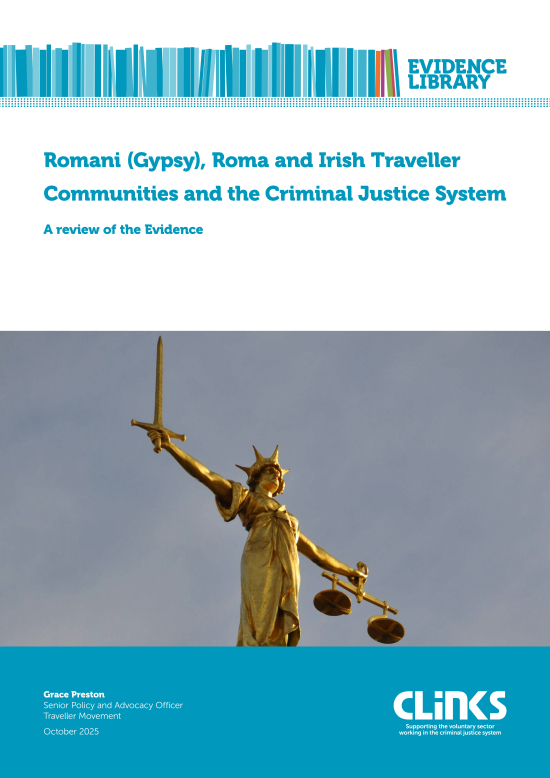As part of Clinks’ Ministry of Justice funded programme of work to support the voluntary sector working in the Criminal Justice System through the challenges of the coming year and beyond, Mike Harvey, a Director at Candour Collaborations, has written a series of blogs focussing on how organisations, as potential Tier2/3 sub-contractors, should negotiate with Tier 1s when agreeing contracts.
The blogs, every Monday in October, will cover the different stages of a negotiation, things you should consider, and key points to keep in mind throughout the negotiation process. The first in the series starts with the most fundamental, but often overlooked fact:
When you agree a contract you don’t get what your organisation deserves, you get what you negotiate!
These days fully grant funded activity is about as rare as expenses claims for duck houses; with income just as likely to be generated through the delivery of public service contracts as it is through fundraising. And the ongoing aggregation and scaling up of contracts like Transforming Rehabilitation or the NOMS CFO contracts means an increasing proportion of any contracted work a voluntary organisation delivers is just as likely to be as a subcontractor (Tier 2/3) to a Prime contractor (Tier 1) as it is through a contract with the commissioner directly. But that brings with it a new set of challenges.
Tier 1s may not share the same values, objectives or goals as your own organisation, or even the commissioning body, so finding ‘matters of mutual interest’ is important. There will be common ground – a goal of rehabilitating ex-offenders to reduce re-offending rates – but while for some this will be the primary goal, for others these contracts are simply a way to deliver organisational growth. The level of common ground and shared values will vary with every Tier 1 you engage with; generally the more there is, the easier the negotiation.
These differing interests and motivations make it all the more essential that voluntary organisations can negotiate effectively when agreeing contracts. As one Business Development Director (BDD) of an international PLC put it to me last year when discussing the Transforming Rehabilitation contracts “Of course I’m going to try and screw down the supply chain on unit rates; that’s what my Board expect me to do.” In that instance, his objective was to secure the most effective supply chain possible, at the cheapest price, offering the minimum level of support to delivery organisations to keep their own organisation’s supply chain managements costs low so they could submit a commercially competitive bid.
To me negotiating is an essential part of reaching any business agreement, so I would enjoy dealing with that BDD to try and thrash out a deal that worked for both of us. But having delivered a fair number of workshops on negotiation skills to people from a broad variety of voluntary sector organisations across the country, I think I would be in the minority.
My assessment would be that when it comes to our personal lives, overwhelmingly everyone accepts we routinely negotiate – anyone with children will have used the line “you don’t get pudding unless you eat your vegetables” at some point. But we don’t think about it as a negotiation. And in the professional setting, the majority of voluntary sector staff agree that they routinely negotiate on behalf of, and sometimes with, their services users to get the best possible outcome. However when it comes to negotiating with Tier 1s to secure a better contract for their organisation, many admit they often think they should, but rarely actually do. Often because they don’t feel they can.
That was exactly the scenario in a lot of the supply chain discussions which took place during the commissioning of the DWP’s Work Programme, led at the time by our current Secretary of State for Justice, Chris Grayling, who was Minister for Employment during that process. In evidence given to the Justice Committee on the plans for Transforming Rehabilitation, when talking about lessons learned from the Work Programme Grayling said:
“It is quite clear that some of the voluntary sector organisations that signed up to the Work programme did so on terms that they were just mad to sign up to… By the time that I left the DWP, I had not dealt with one single formal complaint about the conduct of a private contractor towards a subcontractor, but I had lots of complaints from the smaller subcontractors, saying, “Maybe we should not have agreed that deal, but we did.””
And when he said “It’s not my fault if organisations entered contracts that weren’t viable” I couldn’t help but agree in part with the message, if not his delivery style. Because while nobody forced them to sign contracts on the Work Programme, many organisations would argue that with other sources of income disappearing, grants being cut, and demand for services increasing, it felt like they didn’t have a choice. However, I would still argue far too many organisations didn’t attempt to negotiate a better deal and make the contracts significantly more palatable.
So how do you go about negotiating a better deal? Well the starting point is to recognise that you can negotiate. That the initial offer from a Tier 1 is often exactly that: an initial offer. It’s very rare that they don’t have any room for manoeuvre. If they won’t / can’t negotiate then I would suggest considering two things: 1, does their final offer meet your requirements (if not, walk away), and 2, does it require your own organisation to make any concessions?
The second consideration is important because there are two main types of negotiation, Distributive (sometimes known as Adversarial), and Integrative (Co-operative). Distributive is a win:lose scenario, where one of you is making more concessions than the other, whereas Co-operative is a win:win, and this is much more likely to result in a lasting partnership built on mutual respect. The most successful negotiations are built through co-operation, where all parties perceive both mutual benefit and individual benefit.
A good negotiator will focus on developing mutual benefit by trading concessions. They are willing to explore alternative solutions as well as being able to agree to disagree on occasion. They have an assertive negotiation style without being aggressive, and are willing to push back hard if necessary as they recognise where the power sits – and it’s not always with the Tier 1s, sometimes they need you more than you need them.
Finally, a good negotiator is thoroughly prepared for each of the four phases of negotiation: Preparation, Discussion, Proposal, and Bargain & Close.
I will discuss each of these phases in more detail over the coming weeks, but in the meantime, keep in mind that negotiation is ultimately persuasive communication or bargaining in order to get what you want.
What's new
Blogs
Anne Fox CEO of Clinks to stand down after a decade of service
Publications
Romani (Gypsy), Roma and Irish Traveller Communities and the Criminal Justice System
Latest on X
The role is for a leader from an organisation focused on racially minoritised people, with expertise in service delivery, policy, advocacy, or related areas in criminal justice. Racial disparities are present at every CJS stage. This role ensures these voices are central in shaping policy to help address and eradicate them. Apply by Mon 18 Nov, 10am. More info: https://www.clinks.org/voluntary-community-sector/vacancies/15566 #CriminalJustice #RR3 #RacialEquity

